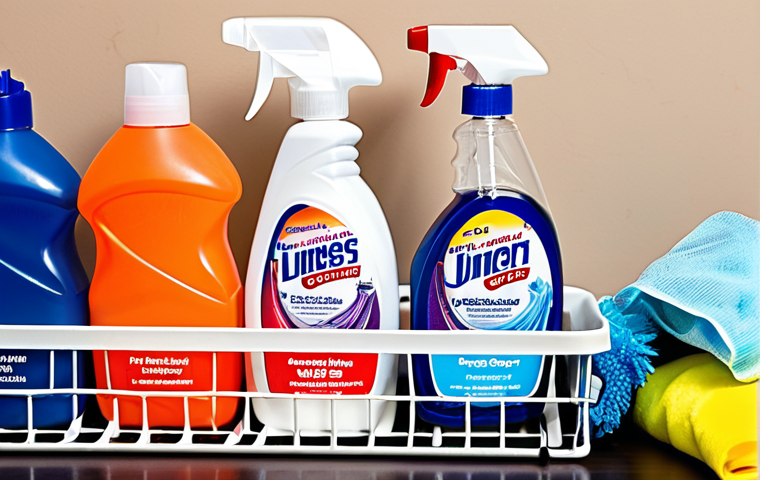Ever thought about making some extra cash by cleaning homes but felt stuck without official certification? Good news! You might be surprised to learn you don’t always need a fancy piece of paper to start earning as a house cleaner.
In many places, it’s more about your reliability, attention to detail, and how well you connect with clients. I remember a friend, totally disenchanted with her office job, who started cleaning houses part-time – and she built a thriving business purely on word-of-mouth!
The gig economy is constantly evolving, and the demand for dependable cleaners is definitely on the rise. Plus, with the increasing focus on hygiene post-pandemic, people are willing to pay a premium for a sparkling clean home.
Many companies now offer apps that connect cleaners with potential clients, making it easier than ever to get started. It’s all about getting your foot in the door and proving you’re trustworthy and good at what you do.
Let’s delve deeper into how you can confidently begin!
Alright, let’s dive into turning that cleaning itch into a money-making reality.
Crafting Your Cleaning Service: The Basics

Starting a cleaning service is more than just grabbing a mop and bucket; it’s about building a brand and reputation. You need to define what makes your service stand out.
Are you going to specialize in eco-friendly cleaning, or perhaps focus on deep-cleaning for busy professionals? Maybe you’ll offer specialized services like organizing or laundry help.
Understanding your niche helps you tailor your services and attract the right clientele.
Know Your Ideal Client
Think about who you want to serve. Are you targeting busy families, single professionals, or perhaps elderly clients who need extra help? Knowing your ideal client helps you tailor your marketing efforts and service offerings.
For example, if you’re targeting families, you might offer services like toy sanitization or cleaning play areas.
Pricing Strategies that Work
Setting the right price is crucial. You need to cover your costs, pay yourself fairly, and remain competitive. Research the rates in your area and consider factors like the size of the home, the scope of the cleaning, and any extra services you offer.
Consider offering different packages at varying price points to attract a wider range of clients.
Marketing Magic: Spreading the Word
Alright, now you’ve got your cleaning game plan set, but how do you let the world know you’re open for business? Well, it’s not just about sticking flyers on lampposts (though that might help a bit!).
It’s about being strategic and creative.
Harnessing the Power of Social Media
Think beyond just posting pretty pictures of spotless kitchens. Use platforms like Facebook, Instagram, and even TikTok to showcase your work. Share before-and-after photos (with permission, of course!), cleaning tips, and even fun behind-the-scenes glimpses into your day.
Word-of-Mouth Wonders
Never underestimate the power of a happy customer singing your praises. Encourage clients to leave reviews on platforms like Yelp or Google. Offer incentives for referrals, like a discount on their next cleaning.
Online Presence Essentials
Even a simple website or a profile on a local service directory can make a huge difference. Include clear contact information, a description of your services, and maybe even some testimonials.
Make it easy for potential clients to find you and get in touch.
Essential Skills & Supplies for Cleaning Like a Pro
Alright, let’s talk shop! You don’t need a fancy degree to clean, but you do need to know your way around a cleaning kit and possess some essential skills.
The Ultimate Cleaning Arsenal
A well-stocked cleaning kit is your best friend. Invest in quality supplies like microfiber cloths, a good vacuum cleaner, and a variety of cleaning solutions.
Don’t forget essentials like gloves, masks, and a sturdy bucket. * All-purpose cleaner
* Glass cleaner
* Bathroom cleaner
* Floor cleaner
* Disinfectant wipes
Mastering the Art of Cleaning
It’s not just about wiping surfaces; it’s about doing it efficiently and effectively. Learn the best techniques for tackling different types of messes, from stubborn stains to greasy buildup.
Watch online tutorials, read cleaning guides, and experiment to find what works best for you.
Safety First
Always prioritize safety when cleaning. Wear gloves and masks to protect yourself from harsh chemicals. Be careful when lifting heavy objects and avoid mixing cleaning products, as this can create dangerous fumes.
Client Communication: Building Trust and Rapport
Okay, so you’ve got the skills and the supplies, but cleaning is also about building relationships with your clients. Clear, friendly, and professional communication can go a long way in establishing trust and ensuring customer satisfaction.
Setting Expectations Clearly
Before you even start cleaning, have a thorough conversation with your client about their needs and expectations. What areas do they want you to focus on?
Are there any specific cleaning products they prefer you use (or avoid)? The more you understand their preferences, the better you can meet their needs.
The Art of Active Listening
Pay attention to what your clients are saying, both verbally and nonverbally. Are they hesitant about something? Do they seem particularly concerned about a certain area of their home?
Address their concerns and reassure them that you’re committed to providing a top-notch cleaning service.
Feedback is Your Friend
Don’t be afraid to ask for feedback after each cleaning. What did you do well? What could you improve?
Constructive criticism can help you refine your services and ensure that your clients are always happy with the results.
Insurance and Legalities: Protecting Your Business
Alright, let’s get down to the nitty-gritty. While you might not need a license to clean houses, there are some legal and financial aspects to consider to protect yourself and your business.
Basic Liability Coverage
Accidents happen. You might accidentally damage something in a client’s home, or a client might slip and fall while you’re cleaning. Liability insurance can help cover the costs of these accidents, protecting you from potentially devastating financial losses.
Worker’s Compensation Considerations
If you plan to hire employees, you’ll likely need to obtain worker’s compensation insurance. This insurance covers medical expenses and lost wages for employees who are injured on the job.
Independent Contractor Agreements
Whether you’re working solo or hiring others, it’s crucial to have clear agreements in place. An independent contractor agreement outlines the terms of your service, including payment rates, scope of work, and termination clauses.
Here’s a sample table showcasing potential start-up costs:
| Item | Estimated Cost (USD) |
|---|---|
| Basic Cleaning Supplies | $50 – $100 |
| Vacuum Cleaner | $100 – $300 |
| Insurance (Liability) | $100 – $500 per year |
| Marketing Materials (Flyers, Business Cards) | $20 – $50 |
| Website/Online Listing | $0 – $100 per month |
Scaling Your Business: From Solo Cleaner to Cleaning Empire
So, you’ve mastered the basics, built a solid reputation, and your client list is growing. Now what? It’s time to think about scaling your cleaning business.
Hiring and Training Your Dream Team
As your business grows, you’ll likely need to hire additional cleaners. Take your time to find reliable, trustworthy, and detail-oriented individuals.
Invest in proper training to ensure they meet your standards of quality and professionalism. * Implement a structured training program
* Provide ongoing mentorship
* Foster a positive work environment
Expanding Your Service Offerings
To attract new clients and increase revenue, consider expanding your service offerings. You could add services like:
* Move-in/move-out cleaning
* Deep cleaning
* Window washing
* Carpet cleaning
Franchise Opportunities
If you’re truly ambitious, you could even consider franchising your cleaning business. This allows you to expand your brand and reach into new markets while leveraging the expertise and resources of franchisees.
Embracing Technology: Streamlining Your Operations
In today’s digital age, technology can be a game-changer for your cleaning business. From online scheduling to automated billing, there are countless ways to streamline your operations and improve efficiency.
Online Scheduling and Booking Systems
Make it easy for clients to book your services by using an online scheduling system. This allows them to view your availability, select their desired cleaning package, and pay securely online.
Mobile Apps for Cleaners
There are a variety of mobile apps designed specifically for cleaning businesses. These apps can help you manage your schedule, track your expenses, communicate with clients, and even generate invoices.
Automated Billing and Payments
Say goodbye to manual invoicing and chasing down payments. Automate your billing process with a payment platform. This can save you time and ensure that you get paid promptly.
Alright, let’s transform your cleaning hustle into a full-fledged success story!
Wrapping Up
So, there you have it! Turning your knack for cleaning into a money-making venture is absolutely within reach. Remember, it’s about more than just elbow grease; it’s about crafting a brand, building relationships, and staying adaptable. With a little hustle and a lot of heart, you can scrub your way to success. Now go on and make some sparkling magic happen!
Handy Tips to Keep in Your Back Pocket
1. Always do a walk-through with new clients. This sets clear expectations and ensures everyone’s on the same page.
2. Build your own cleaning checklists. It helps you stay organized and ensures you don’t miss any spots.
3. Invest in good quality microfiber cloths. They’re reusable, durable, and do a fantastic job on various surfaces.
4. Don’t be afraid to say “no” to jobs that don’t fit. Protecting your time and energy is key.
5. Underpromise and overdeliver. Exceeding expectations is the best way to get referrals!
Key Takeaways
Starting a cleaning service is a blend of hard work, smart marketing, and excellent communication. Focus on building trust with your clients, investing in quality supplies, and adapting to the ever-changing landscape of the industry. Remember, a clean house leads to a happy client, and happy clients lead to a thriving business!
Frequently Asked Questions (FAQ) 📖
Q: Okay, so if I don’t need a certification, what does make me a good candidate for house cleaning?
A: Honestly, it’s all about the soft skills and practical smarts. Think reliability – can you consistently show up on time and complete the job as agreed?
Attention to detail is huge; people notice if you cut corners. And being a good communicator is key, so you can understand exactly what your client wants and address any concerns.
When I hired someone last year, I chose her not because she had a fancy certificate, but because she was super friendly, asked all the right questions about my expectations, and had great reviews online praising her thoroughness.
Q: What’s the best way to actually find clients, especially when I’m just starting out with no reputation?
A: That’s the million-dollar question, right? I’d suggest starting local. Tell everyone you know – friends, family, neighbors – that you’re offering cleaning services.
Word-of-mouth is gold! Also, look into local Facebook groups or community bulletin boards where people often post about needing help with household chores.
There are also apps like TaskRabbit or Thumbtack where you can create a profile and start bidding on jobs. Be prepared to offer competitive rates initially to build up your client base and get those all-important positive reviews.
Don’t underestimate the power of flyers in local cafes or laundromats either!
Q: What about insurance? Do I really need it as a solo house cleaner?
A: Okay, so this is the boring but essential part. While you might think you can skip it, insurance is seriously important. Imagine accidentally damaging something expensive while cleaning – you’d be liable.
General liability insurance can protect you from claims of property damage or bodily injury that might happen while you’re working. It might seem like an extra expense, but it could save you a fortune in the long run.
Think of it as an investment in your peace of mind and the longevity of your business. Shop around for quotes from different providers to find a policy that fits your needs and budget.
Better safe than sorry, trust me.
📚 References
Wikipedia Encyclopedia
구글 검색 결과
구글 검색 결과
구글 검색 결과
구글 검색 결과
구글 검색 결과

